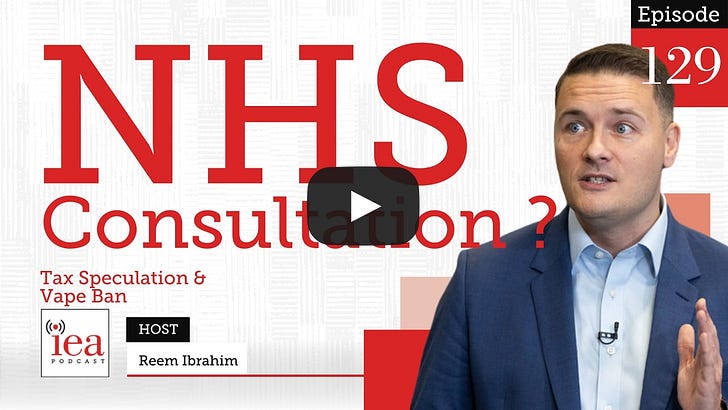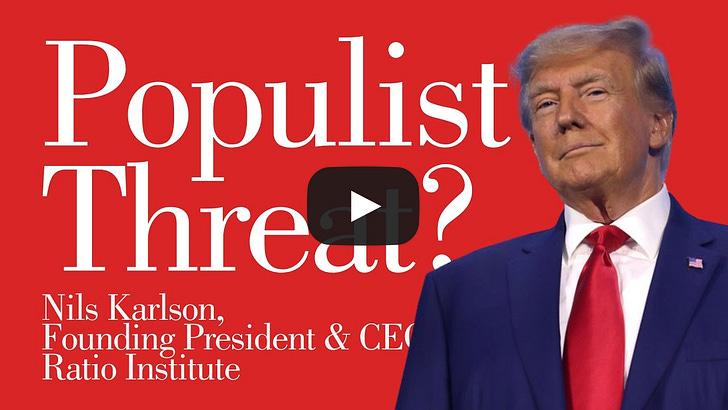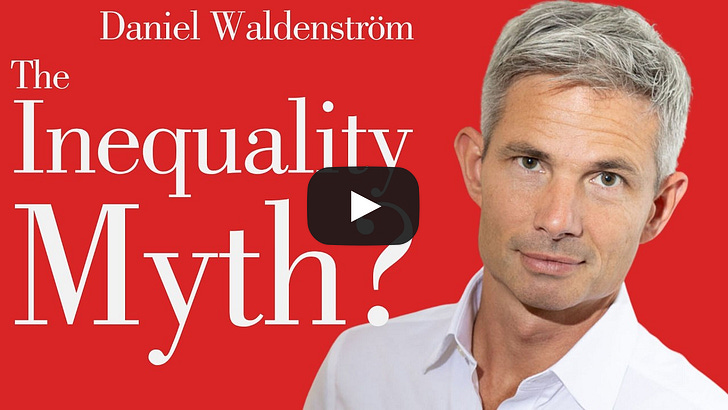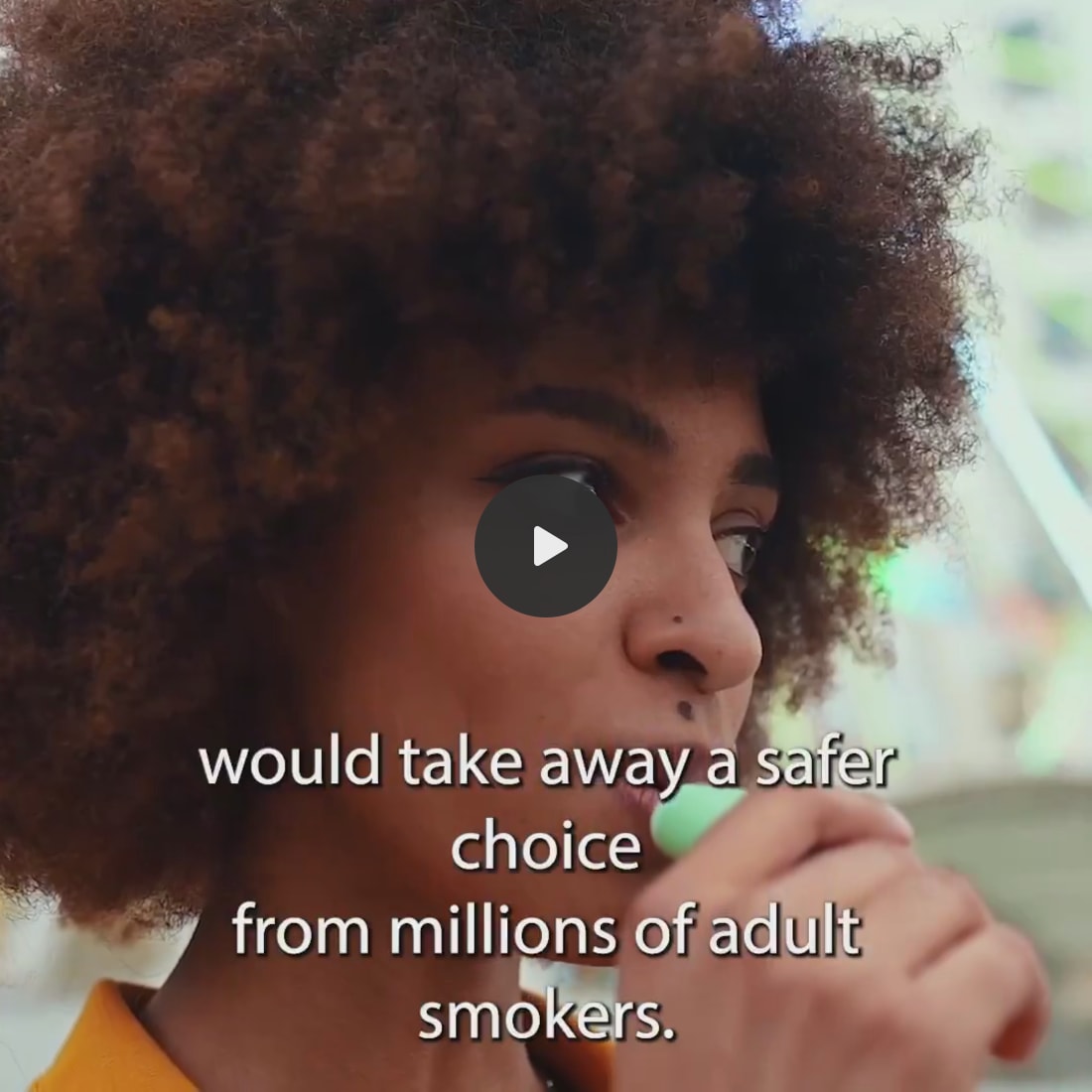|
 |
This week, it was reported that the Government are going to press ahead with their plan to ban disposable vapes.
Arguments in favour of the ban hinge on two issues that consistently attract heavy-handed government intervention: young people and the environment. The ban is of course illiberal, but even from a public health perspective, the arguments don’t necessarily follow.
First, let’s address concerns about youth vaping. Currently, it is already illegal for under-18s to purchase or use e-cigarettes. Banning a product because it is sometimes consumed by people who are already banned from buying it is a poor basis for legislation. So, the real problem is the failure to enforce existing legislation. If current laws are not being enforced, can we really expect a total ban to be properly enforced?
There is also no reason to believe that banning disposable vapes would actually remove them from the market. The black market is already rife with illegal disposable vapes. Demand for disposable vapes on the black market would likely boom if they are banned, and vapes would continue to be sold illegally. The Government would be taking the disposable vapes market from the taxed and regulated private sector, and handing it to criminals.
But how significant is youth vaping? According to Action on Smoking and Health, double the number of 11-17 year olds drink alcohol regularly than vape regularly. No one would seriously consider banning alcohol for everyone because some under-18s manage to access it, so why are we doing this with disposable vapes?
Then there is the argument about the environmental impact of disposable vapes. It is true that they contribute to waste, including plastics and lithium. But there are practical solutions to these problems. Recycling programs and deposit return schemes could mitigate these environmental concerns without penalising adults who wish to responsibly use the product.
Even so, many other products include these materials and are not facing bans. The lithium discarded in disposable vapes every year is enough to build 1,200 car batteries, a tiny fraction of the 16.5 million electric cars on the road in the UK. Are going to ban electric cars on the basis that it is bad for the environment too?
There are, as with many other bans, unintended consequences to consider. Vaping is more than 95% less harmful than cigarettes, and millions of adults across the UK have quit smoking through switching to vapes. Disposable e-cigarettes are initially cheaper and tend to be easier to use than other vaping products. By taking away a safer and healthier choice from millions of adult smokers, the Government is making it more difficult for smokers to quit.
Last year, when this policy was initially considered by the Conservative Government, Christopher Snowdon and I co-wrote a paper expanding on these arguments. Instead of a misguided ban, we should enforce existing legislation and implement smart, practical solutions to environmental concerns.
This is nothing more than a classic case of Government overreach.
Reem Ibrahim
IEA Acting Director of Communications and Linda Whetstone Scholar
P.S. The best way to support our vital research and educational programmes is to become a paid IEA Insider. For a limited time, new paid subscribers will receive a copy of Steve Davies’ new book Apocalypse Next: The Economics of Global Catastrophic Risks and a 15% discount.
Public Sector Gets a Free Pass on NI Tax Hikes, Vaping Ban & NHS Consultation | IEA Podcast, Acting Director of Communications Reem Ibrahim, Executive Director Tom Clougherty, Managing Editor Daniel Freeman, IEA YouTube

NIC rise could reduce wages
Reports suggest that the UK government will rise National Insurance Contributions (NICs) for employers in Wednesday’s Autumn Budget. According to new research by PolicyEngine and published by the Institute of Economic Affairs, employers could respond to the rise by reducing wages and increasing prices.
Under a 2p rise, a company that employs 10 workers on 30k would pay £28,842 currently and £33,022.
Employers may offset the changes by reducing wages substantially.
If the company responded by reducing wages to keep its employment costs fixed, this would result in a £361 pay cut, reducing their take-home pay by £260 (their taxes fall by £101).
A 1p rise would raise between 4.7 and 9.2 billion for the Treasury depending on the employee wage incidence.
Commenting on reports that the Chancellor will raise employers’ national insurance, IEA Executive Director Tom Clougherty said:
"The government's rumoured plan to increase employer National Insurance contributions highlights two important principles of tax policy.
"First, the incidence of a tax doesn't always fall on the person who pays it. When we tax businesses, it is often workers who end up bearing the burden in the form of lower wages.
“This means the idea of tax hikes that don't hit ‘working people’ is little more than a political fantasy.
"Second, tax affects behaviour – and the choices people make in response to a tax increase (or a tax cut) can have a significant impact on how much revenue is raised.
"A good tax system would seek to be as transparent as possible about who really foots the bill, while also seeking to minimise its impact on economic decision-making. We are a very long way from that ideal at the moment."
Hitting employers with NI hike will be costly 'tax on jobs', The Sunday Express
The Institute of Economic Affairs warned that workers could face pay cuts if companies try to keep their staff costs fixed.
It said that a business that employed 10 people earning £30,000 would see its national insurance contributions increase from £28,842 to £33,022 if the rate went up by two points. If it reduced wages to stop an increase in costs, workers would face a £361 pay cut.Tom Clougherty, the think tanks’s executive director, cautioned: “When we tax businesses, it is often workers who end up bearing the burden in the form of lower wages.”
News, Views & Upcoming Events
Are populists destroying democracy?, Editorial Director Dr. Kristian Niemietz and Founding President & CEO of the Ratio Institute Nils Karlson, IEA YouTube

Why a Labour ‘sin tax’ raid will backfire, IEA Head of Lifestyle Economics Dr Christopher Snowdon quoted in The Telegraph
The Wealth Gap Myth: Why Everything You Thought About Inequality is Wrong, Managing Editor Daniel Freeman and Professor Daniel Waldenström, IEA YouTube

Why your income tax and national insurance could never escape Reeves’s Budget, IEA Economics Fellow Julian Jessop quoted in the i
We can’t regulate our way out of the water crisis, IEA Public Policy Fellow Matthew Lesh, CapX
UK government axes pub garden smoking ban, IEA Acting Director of Communications Reem Ibrahim quoted in the Drinks Business
Let’s talk about vaping, IEA Acting Director of Communications Reem Ibrahim, X
Last weekend, the IEA’s International team headed to Łódź, Poland for the 11th edition of Freedom Games 2024. With almost 3000 attendees and 500 speakers from across Europe, Freedom Games allowed for interesting and fruitful discussions on the future of the continent.
EPICENTER hosted panels throughout the conference, discussing a range of issues impacting the future of the European continent.
"Government Doesn't Trust You With Your Own Health" | Freedom Games 2024, Julian Braithwaite (IARD), David Zaruk, and Sebastian Stodolak, and moderated by Reem Ibrahim, IEA YouTube
You’re currently a free subscriber to Insider. For the full experience, upgrade your subscription.
Paid subscribers support the IEA's charitable mission and receive special invites to exclusive events, including the thought-provoking IEA Book Club.
We are offering all new subscribers a special offer. For a limited time only, you will receive 15% off and a complimentary copy of Dr Stephen Davies’ latest book, Apocalypse Next: The Economics of Global Catastrophic Risks.









